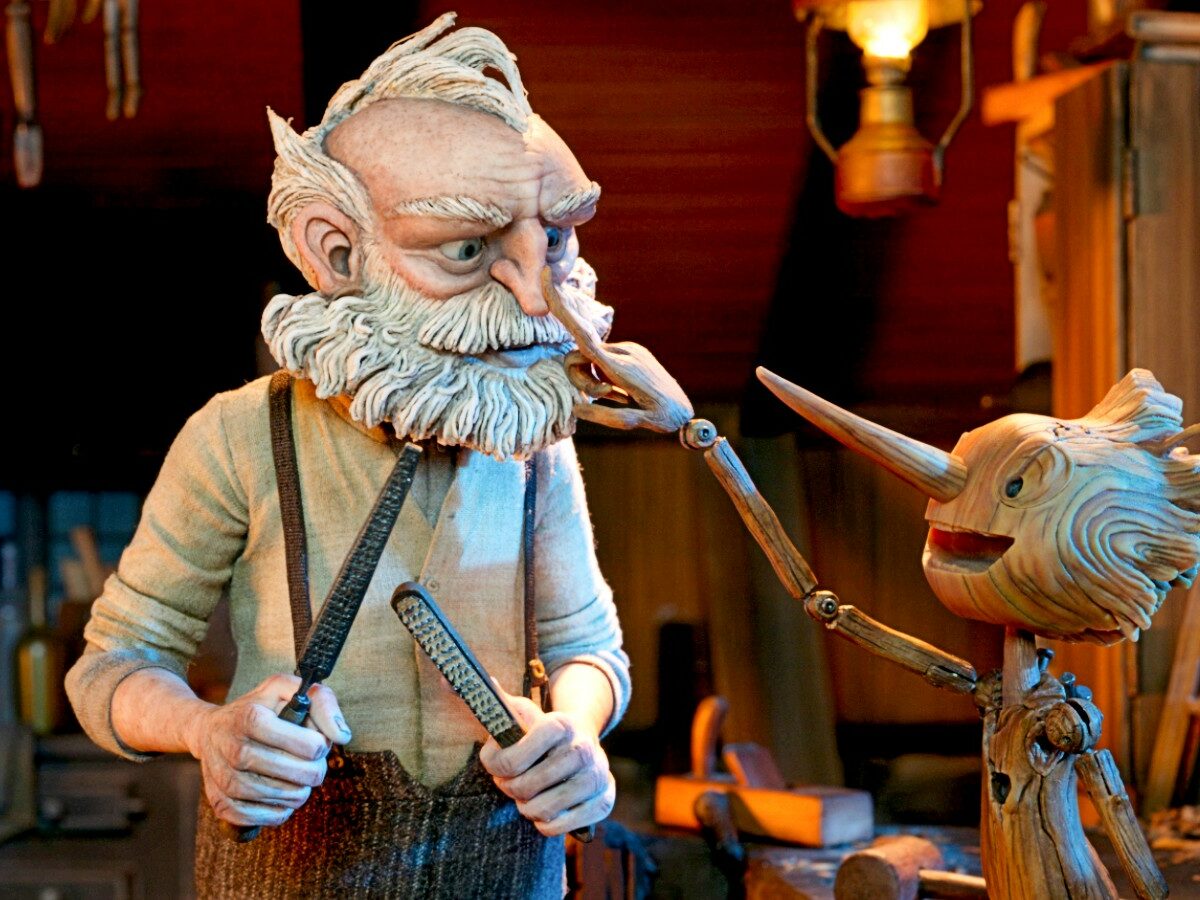- Get link
- X
- Other Apps
Posted by
Scott Martin
- Get link
- X
- Other Apps
DISCLAIMER: I have not seen the film. This synopsis is merely my best guess, based off of the trailer and my flabbergasted intellect.
Grumpy in his old age a man named Geppetto decides that switching from forced air heating to a wood stove is the way to save money during the cold winter months. Burt, the one from down the road, brings by five bush cord of unspoiled wood. Dumping it off beside the grumpy old man's house, Burt takes a swig from his flask of whiskey. This is how he will stay warm during the winter.
Geppetto sets to splitting and stacking the wood. This is hard work for an old man. Splitting wood is a young man's game, so he figures he can make a boy out of some of the spalted maple who he can bring to life through a cruel curse. The boy could take care of the wood, and at the end of the winter the boy could be thrown into the wood stove to bring his life full circle, thus burning slowly in the stove to throw off a few precious BTUs.
Once the wooden boy is created, Geppetto makes the grave mistake of giving it a name. There are a few simple rules in life. You don't name an animal that you are raising to one day become a meal, and you don't name a wooden helper entity that you intend to use for internal heating purposes. The boy gets named Pinocchio, and Geppetto instantly has second thoughts about his ultimate plan of using the boy for fuel.
Pinocchio is a good labourer, but he has delusions of becoming a real boy. He finds out that Geppetto once had a son, and he decides that he will try and manipulate Geppetto into thinking that he is the reincarnation of the deceased child. This, he figures, would mean being treated like a real boy and not some stove stoker who has to sleep on the floor and have creepy insects as his friends. It's a bit of a moonshot, but hey, it's worth trying.
The plan works a bit, but then runs into trouble when Pinocchio starts to believe that he has a career in showbiz ahead of him. What Pinocchio didn't know was that Geppetto's original son died from blunt force rejection when he tried out for the role of little orphan Annie in a regional production of Les Miserables. This tragedy weighed heavy on Geppetto's shoulders, and he swore that never again would he endanger the life of someone he knew by rolling the dice in the dangerous game of theatre and spectacle.
Not wanting his wooden boy labourer to get involved in the game of live performance, Geppetto doubles down on the chores that Pinocchio must do, and tries to bury the slivery wood child in religion and all the like. This doesn't work well, as the curse causes a mighty elm to start growing out of Pinocchio's face when he stands on hallowed ground. All of the church goers see the curse for what it is.
Before they can get the pitchforks out, Pinocchio runs away and encounters a big prick of a blue being who taunts the poor boy. "You're going to live forever, you little crap," the mystical creature says. "You're going to watch everyone you have ever known and love die right before your eyes. Deal with it, punk." Then, after taking a swing of its Dr Pepper (wouldn't you like to be a pepper too?) it disappears, leaving Pinocchio with a lot more questions than answers.
What to do now, the boy ponders. He's heard great things about open salty bodies of water, and this seems like the kind of time when kicking back in the big blue would be grand. Taking his cricket friend along for the ride, they head out. Little does the cricket know, Pinocchio is only bringing him along to eventually use him as fish bait when the rations run out. The cricket quickly wises up, and a dangerous game of cat and mouse begins in their little boat. The cricket ends up outsmarting Pinocchio (as gorgeous as spalted maple is, it has never been known to be clever and street smart) and uses the wooden boy as bait to catch himself a flippin' whale. A cricket can sustain life for a long while on a whale carcass, which he does until he dies twenty four hours later, on account of the brief life cycle of crickets.
- Get link
- X
- Other Apps
I'm smarter than a bat. I know this because I caught the little jerk bat that got in my apartment, before immediately and inadvertently bringing him back in. So maybe I'm not smarter than a bat.

Comments
Post a Comment